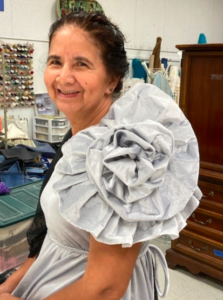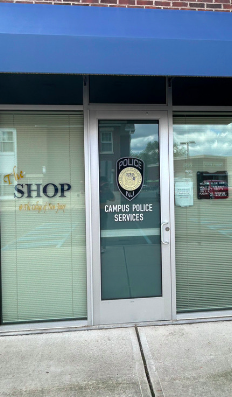By Tori Duym
On Feb. 7, the Hamilton Elks Lodge hosted an event to raise money and supplies for veterans experiencing homelessness as they help place them in apartments and homes, for the second year in a row. This event was held in conjunction with Business Networking International (BNI) as they work closely with the cause of housing veterans and providing them with the essentials needed to live comfortably. The event used a clever title, “3 hours 2 support 1 homeless veteran at a time,” getting their message across and explaining the event all in one.
Rose Romaine, the head coordinator of this event through the Elks Lodge, who also has a connection to BNI, poured her heart and soul into organizing such a wonderful night to provide for a worthy cause. Joe Glover, president of the Elks Lodge, expressed his gratitude for all of the hard work Romaine put into the planning and execution of this event.
“All of the credit goes to Rose, I’m just here to support and help provide veterans with the support they need,” Glover said.
Glover also expressed his gratitude for all of the volunteers and their hard work from everyone it took to make this event possible. He is very passionate about helping the homeless veteran community.
When speaking with Romaine, she provided information as to what goes into the Welcome Home packages that are provided to the veterans. She explained that each package comes with items like furniture, plates, bowls, silverware, bedding and some appliances. Their goal for the night was to raise a minimum of “$7,501, because we did $7,500 last year. . . but I would love to see us raise $10,000 this year.” All funds go directly towards buying “welcome home” packages for veterans experiencing homelessness.
Business Networking International Area Director for Mercer County, Shawn Donelson, talked passionately about their co-sponsorship of the event, along with BNI’s annual golf tournament, to raise money for the same goal. He explained that this event raised the most money out of all of their events for the cause.
Donelson emphasizes the importance of providing these welcome home kits to veterans, as he says “When a homeless veteran gets placed into a home, there are a lot of necessities that they need, including things like a bed, furniture, and more.” Welcome home kits include a wide variety of items,with the goal of raising enough money and donations to provide at least two full kits, with their future events continuing to provide more.
During a conversation with Navy veteran Hank Elmer, he explained the impact of the event from his perspective. He currently serves as the committee chair of veterans, stating that after his tough return home from service, the Elks Lodge “works very hard to make sure veterans now won’t be treated the same way.”
Elmer also explained that the Elks Lodge works closely with the Veterans Association in order to place veterans in small homes or apartments. This process is possible for veterans who have served two years of active duty service and received an honorable discharge. There has been a significant increase in the number of veterans receiving assistance to find a home from last year to this year. According to Elmer, the amount has gone from approximately 12 veterans a month to over 30 now.
The Elks Lodge has branches all over New Jersey, holding several annual events for veterans and to raise money for those who currently are experiencing homelessness. One of the most popular events, the Jim Hall Memorial Picnic, is held annually in June at the Brick Township Elks Lodge, which Elmer said has a large turnout each year.
There are many opportunities to get involved or to receive assistance from the Elks Lodge in collaboration with companies such as BNI and other organizations like the Veterans Association.








